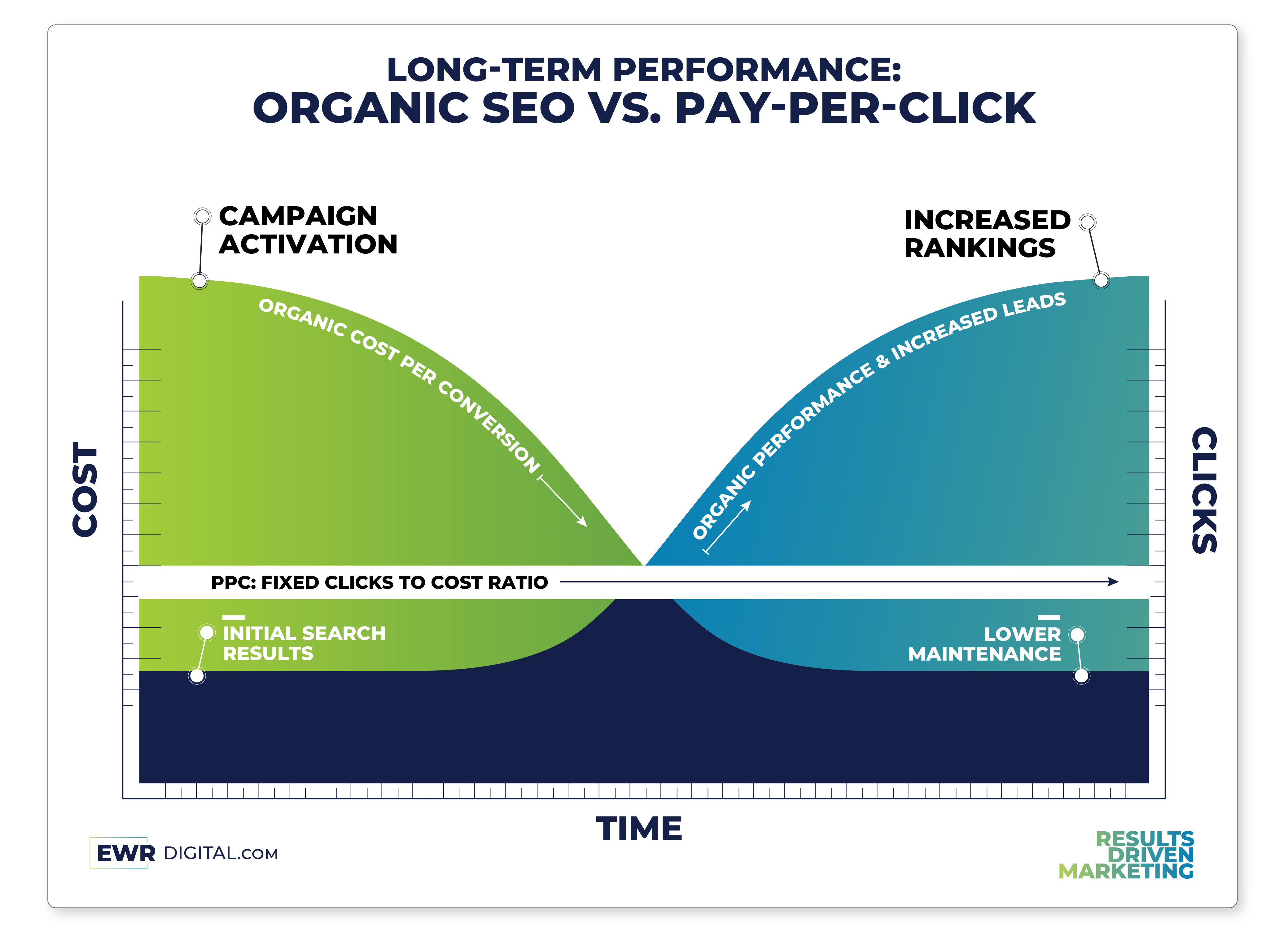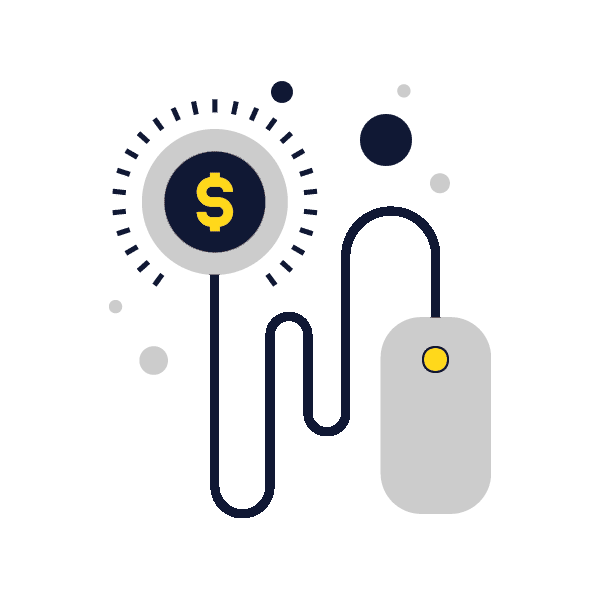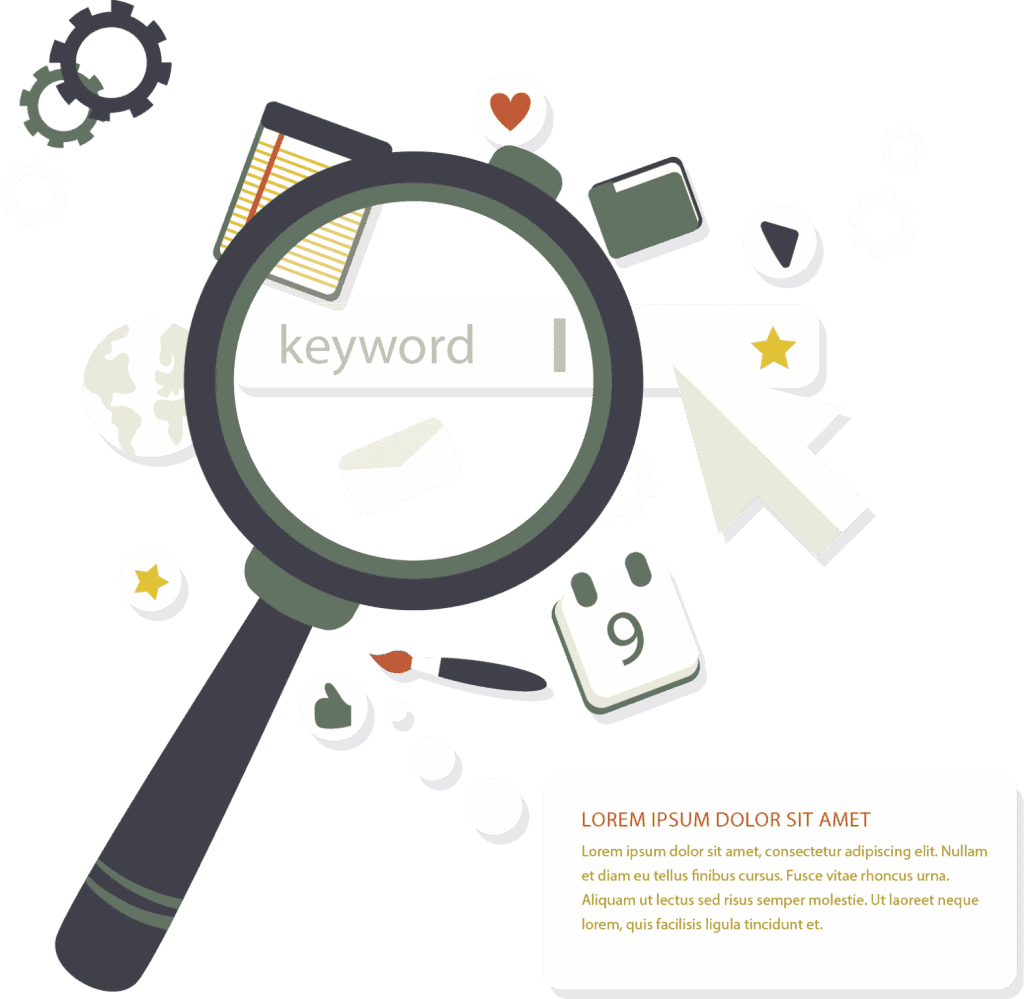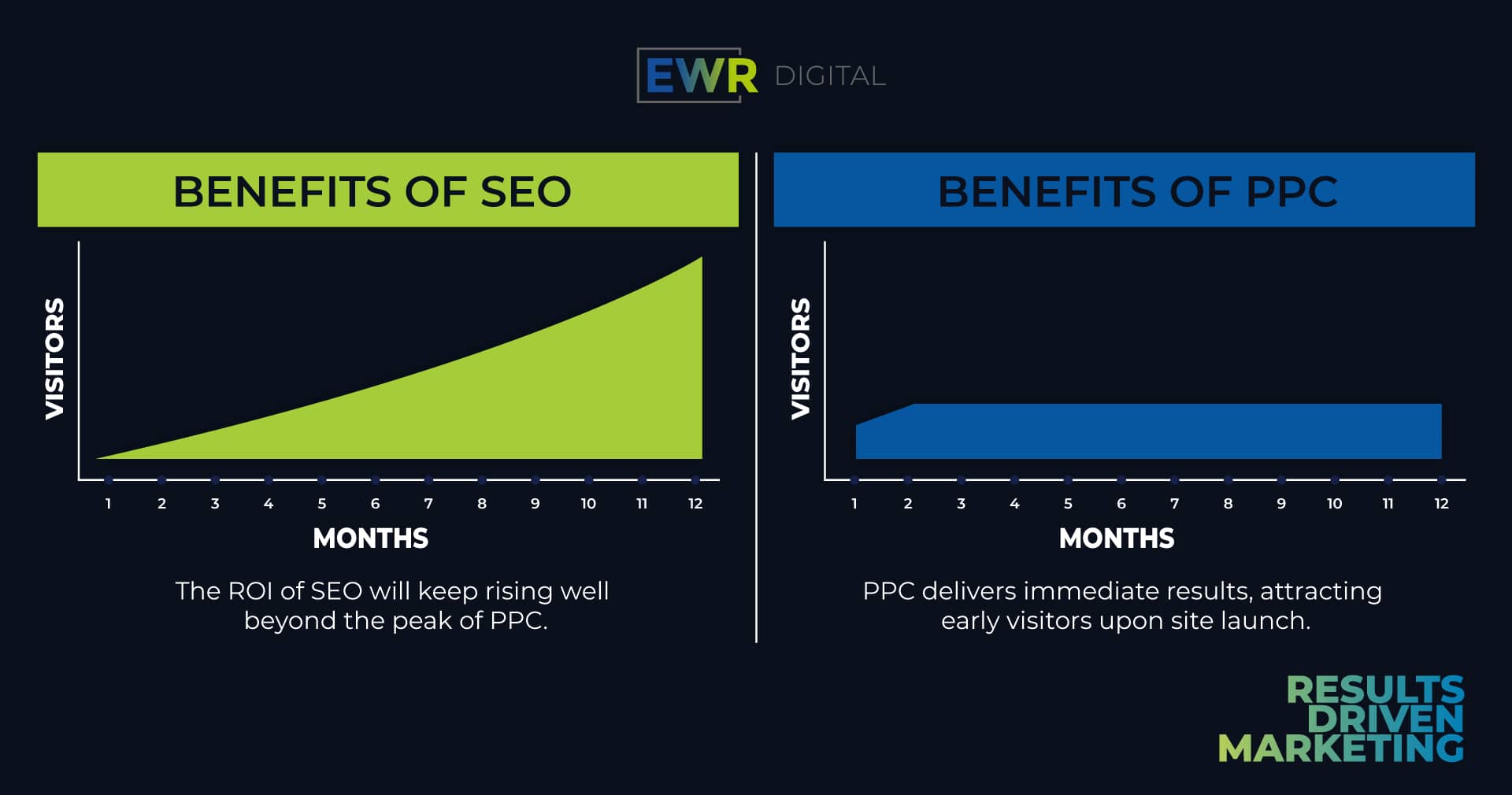
When Should I Stop PPC?
Is it time to break up with PPC? Nobody wants to invest in a marketing strategy that isn’t working. Do you have a pay per click campaign that isn’t performing like you want it to?
Read on to learn about how to best leverage PPC and when it’s time to move on to another strategy.
What is PPC?

PPC (Pay-Per-Click) advertising is a digital marketing model in which advertisers pay each time their ad is clicked by a user. It is a way of buying website visits or clicks rather than trying to earn them organically.
PPC ads are typically displayed on search engine results pages (SERPs) or on websites and social media platforms, and advertisers bid on specific keywords and ad placements. The ads are designed to be relevant to the user’s search query or interests, and can appear in a variety of formats, including text ads, display ads, and video ads.
PPC advertising can be an effective way for businesses to drive targeted traffic to their website or landing page, increase brand awareness, and generate leads and sales. However, it requires careful planning, targeting, and optimization to ensure that ads are shown to the right audience, at the right time, and with the right message.
Pay-per-click, commonly known as PPC, is a paid advertising strategy to get your message in front of the people who want to see it.
When pay per click campaigns work effectively they can be a great source for leads. But what should you do if you are spending money on Google or Bing Ads and you still aren’t getting a the results you want?
PPC has become a popular online advertising tool because it is so easy to get started. If your PPC campaign isn’t getting the results you want you may be tempted to just shut it down. But before you do, here are some things you might want to consider.
Before you remove a campaign and lose all of you data, let’s consider a few things you can do to optimize you campaign.
CAUTION: “If you remove a campaign, you permanently stop it, and you can’t resume it.””
Reevaluate Your Keywords

The first step in any pay-per-click campaign is picking the right keywords. With proper keyword research you should be able to narrow down which keywords will work best for you.
Keyword research involves researching and analyzing search volume, competition, and relevance of specific keywords and phrases. This can include identifying long-tail keywords, which are longer and more specific search terms that are less competitive and often have higher conversion rates.
A common mistake is going after too many keywords at one time. Make sure you don’t get ahead of yourself. Pick a few main ones you want to target.
Landing Page Optimization
By having a low quality landing page, Google will assign a low quality score. This can affect if Google shows your ad. If you are getting the right traffic to your website you might have a conversion problem. Sending traffic to a page with a bad user experience is a waste of your ad budget.
So make sure to optimize your landing pages by doing Conversion Rate Optimization.
CRO (Conversion Rate Optimization) is a process of optimizing a website or landing page to improve the rate at which visitors convert into customers or take a desired action, such as filling out a form, making a purchase, or subscribing to a newsletter. The goal of CRO is to increase the effectiveness of a website by improving its usability, user experience, and persuasive elements to encourage visitors to take the desired action.
CRO involves using data and analytics to identify potential areas for improvement, testing different versions of the website or landing page, and measuring the impact of those changes on conversion rates. This can include A/B testing, multivariate testing, heat mapping and user feedback.
Other reasons your PPC campaign could be failing:
-
Poor Ad Quality: The quality of the ad can impact its performance. If the ad is not appealing or relevant to the target audience, it may not get clicked.
-
Targeting Issues: The targeting options used in the campaign may be too broad or too narrow, resulting in low-quality traffic. The campaign may not be reaching the right people.
-
Wrong Bidding Strategy: The bidding strategy may not be appropriate for the campaign. For instance, if the bidding is too low, the ads may not be shown frequently enough to generate sufficient clicks.
-
Insufficient Budget: If the budget allocated to the campaign is too low, the campaign may not be able to generate enough clicks or impressions to achieve the desired results.
-
Competitor Activity: Competitors may be outbidding the campaign, resulting in lower ad visibility.
Need Help? Contact the PPC Experts
If you have tried making these tweaks and are still not getting the results you want, it might be time to break with your PPC campaign.
If you’re not ready to give up on your Ad Campaign, call in an expert. Setup a PPC audit today!
PPC expert to pinpoint exactly why your campaign is under performing, and discuss actionable steps to improve it.
When Should I Stop PPC? | EWR Digital – Houston, TX



